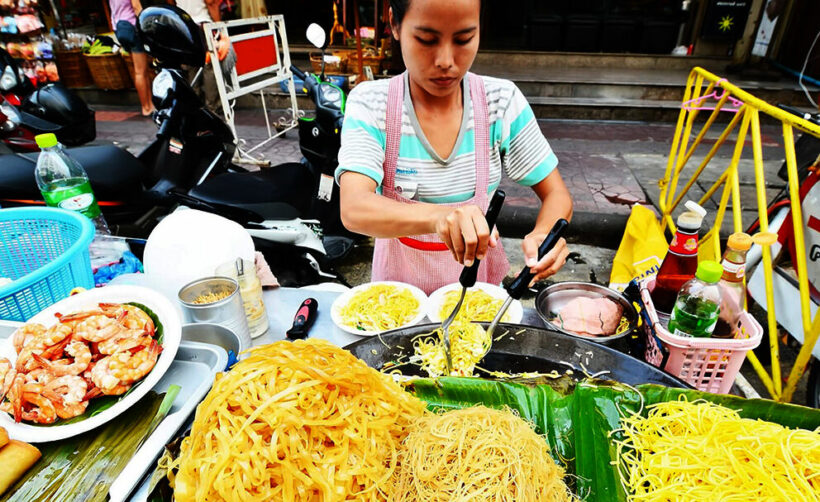Pork, petrol and noodles – inflation impacting prices in Thailand

Heading into 2022, the ‘I’ word is spooking economists around the world as they look at tools to try and control rampant inflation.
Even in Thailand there has been big rises in staples, making headlines this week, particularly in the pork industry. Meat and produce prices have been sneaking up and now impacting the cost of living for everyone living in the country.
The Thai PM Prayut Chan-o-cha is calling on the Ministry of Commerce and Ministry of Energy to hold urgent talks with producers of food and essentials about price freezes or other tools to control the rising prices.
Prices for chicken, eggs, boat fees, even toll fees, are also increasing and Deputy PM Supattanapong Punmeechaow is now asking Thais to “stay positive” amidst the price hikes and claims that “it is temporary”. The government also been in talks this week with the country’s major noodle producer, Thai President Foods, about a possible price freeze.
As a result of the sharp rise in pork prices, crocodile farms have been offering meat from their reptiles at 70 baht for kilogram. With the price of pork kicking over 200 baht per kilogram, people are getting on board with acquiring a taste for the cheaper crocodile meat.
But the government maintains that the current pork price premiums are the result of the controversial spread of the African Swine Fever that has led to pig shortages and, in turn, pork shortages.
This week the Thai cabinet consulted with the Bank of Thailand about controlling Thailand’s rising inflation. According to the National Economic and Social Development Council, Thailand is expected to have an inflation rate during 2022 of 1 – 3%, much lower than prediction in other world economies.
Deputy PM upattanapong Punmeechaow says that, in comparison, the annual inflation rate in the US went up to 7% last year.
“The state is trying to control the price as much as possible, but it also depends on the market mechanism.”
Local economists are also pointing at a global hike in fuel prices as the main driver of the recent inflation. Crude oil has leapt from US$65 to nearly US$84 a barrel since December 3 last year.
“Oil posted a fourth straight weekly gain, the longest winning streak since October, on signs that the market is tightening as global consumption withstands the impact of the omicron virus variant”, according to rigzone.com
Now the Thai government is in talks with the the main oil and gas company, PTT, to offer discount on LPG price for the country’s food shops and street vendors, and regulate the retail price of natural gas for cars. LPG is the main fuel for the Thailand’s taxis.
Latest Thailand News
Follow The Thaiger on Google News:


























